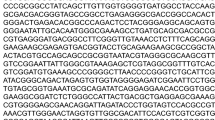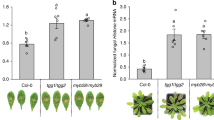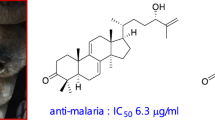Abstract
INFECTION of the florets of Sorghum vulgare by Sphacelia sorghi results initially in the characteristic sphacelial stage, but proceeds to replace the ovary by a sclerotium, off-white flecked with red, which protrudes only slightly from the floral cavity. Although the perfect stage of this organism has not been observed it is probably related to the genus Claviceps, and may therefore be regarded as an ergot fungus.
This is a preview of subscription content, access via your institution
Access options
Subscribe to this journal
Receive 51 print issues and online access
$199.00 per year
only $3.90 per issue
Buy this article
- Purchase on Springer Link
- Instant access to full article PDF
Prices may be subject to local taxes which are calculated during checkout
Similar content being viewed by others
References
McLauglin, J. L., Goyan, J. E., and Paul, A. G., J. Amer. Pharm. Assoc., 53, 306 (1964).
Agurell, S., Acta Pharm. Suecica, 2, 357 (1965).
Barber, M., Weisbach, J. A., Douglas, B., and Dudek, G. O., Chem. and Ind., 1072 (1965).
Stoll, A., and Hofmann, A., Helv. Chim. Acta, 26, 2070 (1943).
Hofmann, A., Die Mutterkornalkaloide (Enke Verlag, Stuttgart, 1964).
Author information
Authors and Affiliations
Rights and permissions
About this article
Cite this article
MANTLE, P., WAIGHT, E. Dihydroergosine: a New Naturally Occurring Alkaloid from the Sclerotia of Sphacelia sorghi (McRae). Nature 218, 581–582 (1968). https://doi.org/10.1038/218581a0
Received:
Published:
Issue Date:
DOI: https://doi.org/10.1038/218581a0
Comments
By submitting a comment you agree to abide by our Terms and Community Guidelines. If you find something abusive or that does not comply with our terms or guidelines please flag it as inappropriate.



